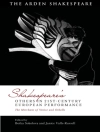Established in 1955, the Leipzig International Documentary Film Festival became a central arena for staging the cultural politics of the German Democratic Republic, both domestically and in relation to West Germany and the rest of the world. Screened Encounters represents the definitive history of this key event, recounting the political and artistic exchanges it enabled from its founding until German unification, and tracing the outsize influence it exerted on international cultural relations during the Cold War.
Jadual kandungan
List of Illustrations and Figures
Preface: The Cold War’s Documentary Crossroads: Leipzig in the Galaxy of Festivals
Dina Iordanova
Introduction: A Festival at the Heart of the Cold War
PART I: A COLD WAR FESTIVAL (1949-1964)
Chapter 1. The Genesis of the Leipzig Film Festival
Chapter 2. Opening to the World
Chapter 3. Between Propaganda and Cinéma Vérité
PART II: BETWEEN PROVINCIALISM AND INTERNATIONAL DIALOGUE (1964-1973)
Chapter 4. When the Tide Turns…
Chapter 5. Toward Documentaries with a Human Face
Chapter 6. Documentaries in the Service of International Solidarity
PART III: A TROMPE L’OEIL MISE-EN-SCÈNE? (1973-1983)
Chapter 7. Wide Angle on Socialist Society
Chapter 8. Don’t Wait for Better Times
PART IV: TOWARD NEW HORIZONS (1984-1990)
Chapter 9. An Opening to the East?
Chapter 10. Revolution on the Screen, on the Street
Conclusion: Beyond the Cold War: A Memory in the Making
Appendices
Glossary
Bibliography
Index
Film Index
Mengenai Pengarang
Caroline Moine is Assistant Professor of Contemporary History at the University of Versailles Saint-Quentin-en-Yvelines. Her research on the cultural history of the Cold War has been widely published in French, German, and English.












